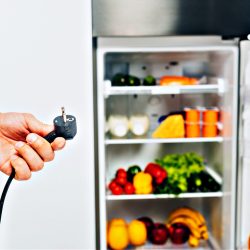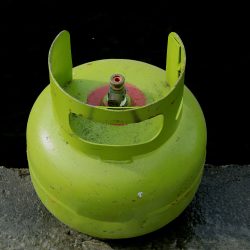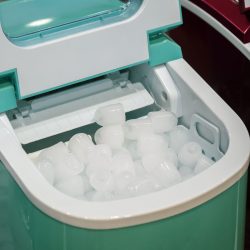Getting to understand the bigger appliances in your kitchen can be tricky sometimes. Do you suspect that your refrigerator needs more gas but don't know how long between changes or how to do this? Well, we've done extensive research into this topic and have the answer for you. Let's get into it.
Typically, the gas inside a refrigerator should last the entire lifespan of your appliance. Considering that this isn't something you'll need to change periodically, it's possible you won't ever need to refill the gas inside of a fridge.
However, if you puncture your refrigerator's icebox or damage it, you could create a gas leak, so that's something to think about.
As we begin, we will cover all things refrigerator gas and discuss how long it will last. Whether you're struggling with an older appliance or recently bought a fridge, we're here to help. With that said, let's dive right into this post!
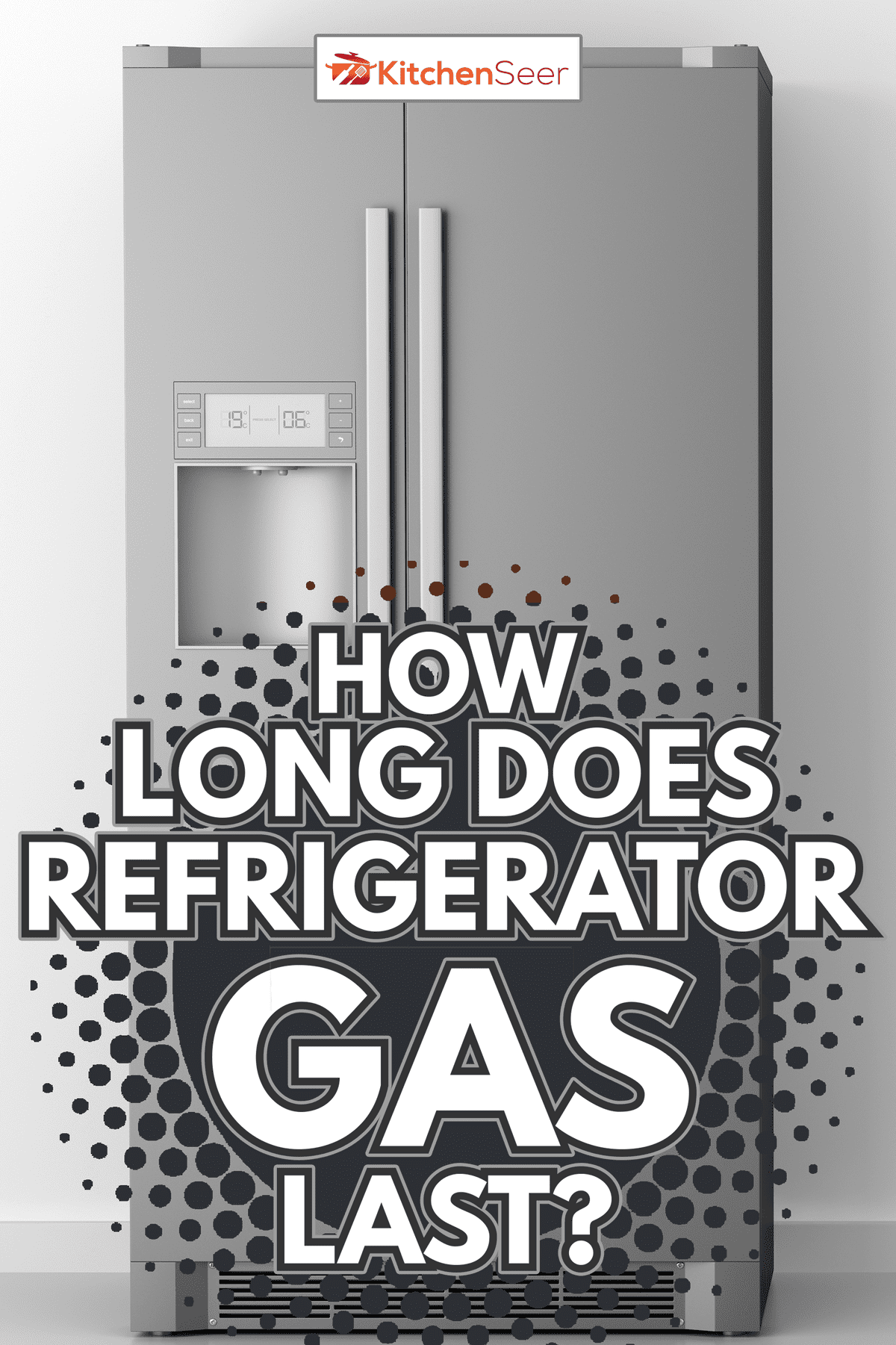
How Long Does Gas Last In A Fridge?
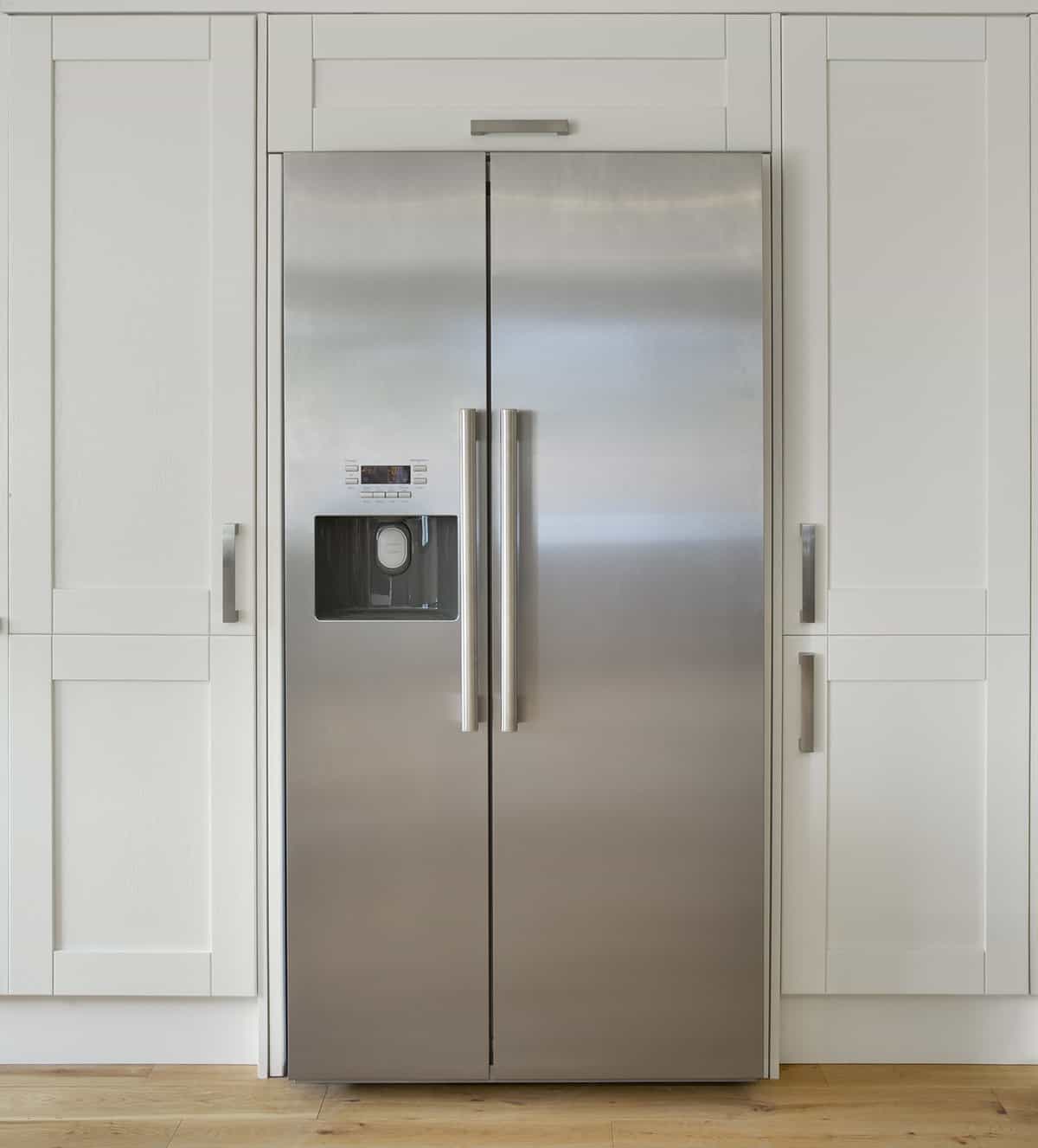
You can usually expect the gas inside a fridge to last its entire lifespan. As we said, you don't need to change the gas inside of a refrigerator often (or at all sometimes), so this shouldn't be something to worry about.
However, if your fridge develops a gas leak, you could need to replace the gas inside. Although this isn't common, puncturing the icebox is a common cause of gas leakage, so be careful when getting ice.
Furthermore, if your icebox becomes overfilled or frost develops, it's best to let it thaw naturally than try to remove the excess ice with a sharp object. Doing this increases the chances of a gas leak and ultimately an expensive repair.
How Do You Know If A Refrigerator Needs Gas?
If you suspect that your refrigerator is low on gas, there is an easy way to check. First, locate your appliance's condenser. This should be towards the middle of the back end of your refrigerator.
Once you find it, place your hand on top of the condenser. If it feels cold but is running, your fridge likely needs more gas or "Freon." That said, your fridge could have something defective, which would cause the gas inside to leak.
It's also possible that your fridge is getting older, which will also explain the sudden change in performance quality.
How Often Does A Fridge Need To Be Re-Gassed?
In general, a fridge should not need to be re-gassed ever. Unlike a car, the gas inside a refrigerator tends to last its lifetime, sometimes outlasting it.
Again, you may need more gas for your appliance if there's a leak, in which case, you need to call in a professional. Unless you're a fully qualified and insured service engineer, re-gassing a fridge can be unsafe.
That goes for repairing leaks too, so when in doubt, call in someone who 100% knows what they are doing.
How Much Does It Cost To Add More Gas To A Refrigerator?
Although pricing can vary, expect to pay between $150 and $1,000 to add more gas or "refrigerant" to your fridge. Of course, your final cost will depend on the amount of labor required, so everyone is different.
For example, if your refrigerator has a significant leak and needs all new Freon, you'll likely need to spend much more than someone with an older, non-leaking appliance.
Again, refrigerators won't usually need to be re-gassed in their lifetime, so this isn't a common issue.
Why Does A Fridge Lose Gas?

The most common reason a fridge loses gas is a leak. As we mentioned earlier, if you are too rough with the icebox in your refrigerator, it's likely a leak will start.
Over time, this gas leak will become more serious, eventually draining your fridge of all its Freon. However, this isn't going to break your refrigerator.
Instead, you will need to add more gas to your appliance, which can be expensive.
How Do You Know If Your Fridge Is Leaking Gas?
Generally, there will be a few warning signs that indicate a refrigerator is leaking. These commonly are:
- Food feels warm/not as cold as usual.
- Your fridge's motor runs constantly.
- Higher electricity bills and more energy usage.
- Strange smells coming from your appliance.
- Unexplained illness.
Furthermore, if a refrigerator is leaking gas, it's a good idea to remove all the food inside. Consuming Freon can end up with a trip to the hospital, so this is very important.
Can You Fix A Leaking Refrigerator?
Yes! If your fridge starts leaking, you can and should fix it. As we said, this might be as cheap as a few hundred dollars, although if the damage is extensive, you could spend upwards of $1,000.
With that said, it's better to handle the issue sooner than later, as Freon is dangerous. When the gas from a refrigerator touches your food, it can make you very sick.
Additionally, the lack of gas inside your appliance will force it to work harder. That means your fridge will start to degrade, eventually breaking altogether.
On top of those things, the lack of Freon will result in higher energy bills, so this is a lose-lose situation.
How Long Does It Take For Freon To Leak Out?
Depending on how old a refrigerator is, this can vary. In general, the bigger the puncture, the more gas will be able to escape from your fridge.
However, if the hole is small, you could have gas leaking for days before noticing. Again, this isn't the same for everyone, so it probably has a leakage if your fridge smells like gas and isn't getting cold.
According to Angi, it can take 30 minutes to six hours for Freon to leak out of a significant sized puncture in a refrigerator, so the damage can happen quickly.
What Does Fridge Gas Smell Like?
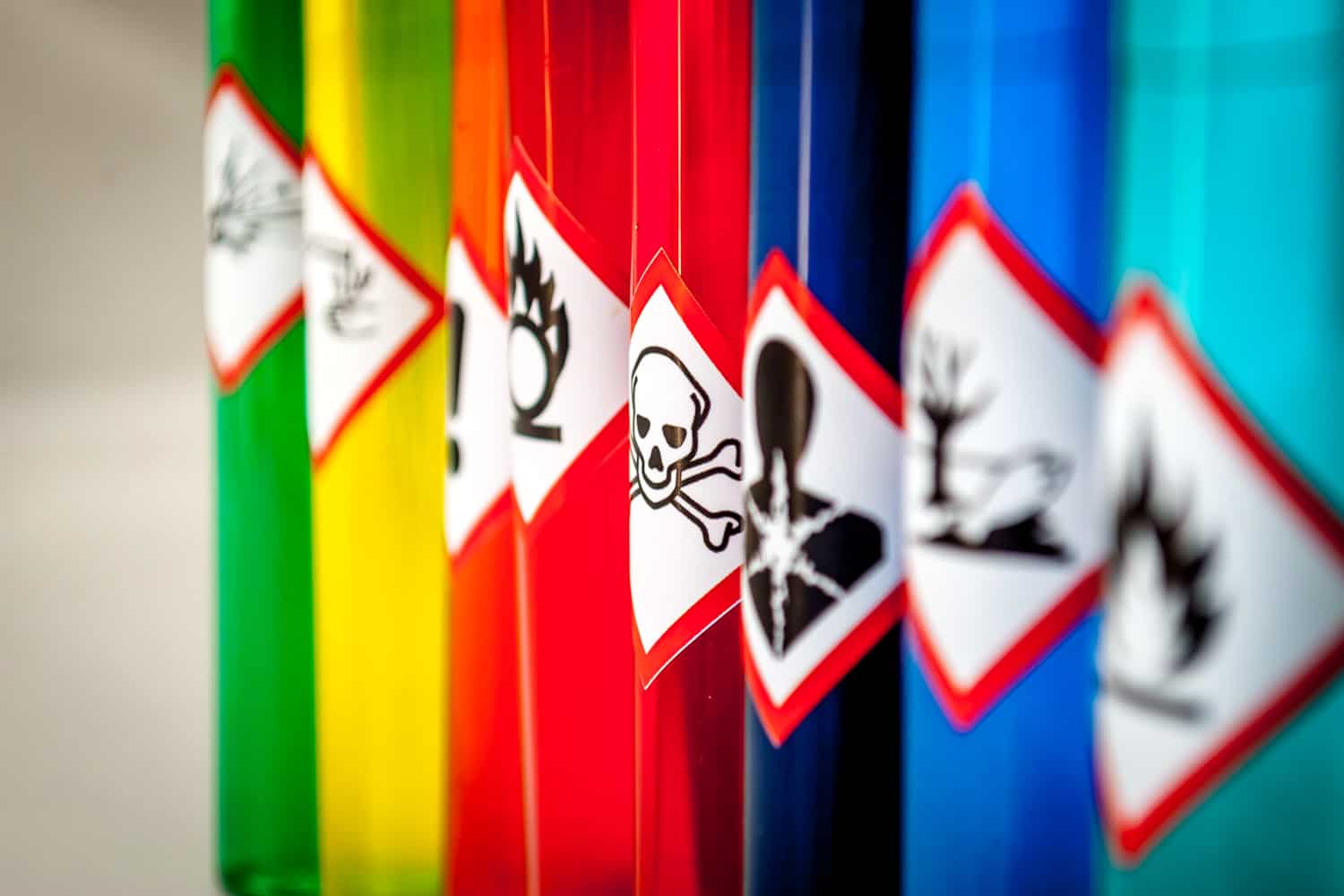
Considering that Freon is a colorless gas, you have to depend on your sense of smell to locate it. Typically, fridge gas will have a chemical scent to it.
Some people describe Freon as smelling similar to ammonia, so that's a good reference. Additionally, if your fridge smells sour or very strong when it's open/closed, this could indicate that Freon is present.
Again, it's a good idea to have a professional inspect your unit before trying to clean/find any gas, so that's our recommendation.
Can Freon (Fridge Gas) Harm You?
Yes, fridge gas is hazardous to breathe and ingest. Besides being toxic, Freon doesn't have a color, which makes it difficult to see.
Like we covered, fridge gas will usually have a chemical smell, something like ammonia. Additionally, the side effects of ingesting/inhaling Freon include:
- Difficulty breathing
- Severe headaches
- Nausea/vomiting
- Skin and eye irritation
- Coughing
So, all things considered, if you suspect there is a leak in your fridge, get out of your home as soon as possible.
How Do I Know If My Refrigerator Is Dying?
If you suspect your refrigerator is dying, there are some things to be mindful of. Some common warning signs of a dying or failing fridge typically include:
- Food is going bad quickly
- Condensation forms in/outside your fridge
- Excess amounts of frost
- Loud and unusual noises
- A silent refrigerator
- Super hot condenser coils
- Cracks in the shell
- Frequent overheating
- An appliance over ten years old
Furthermore, if your fridge needs more and more repairs, this is also a sign that it's time to replace it. Generally, problems will start around the eight-year mark, but you should see your appliance last at least a decade.
Again, this is different for everyone, so make sure to regularly clean and inspect your refrigerator and call a professional if any issues arise.
How Long Should A Fridge Last On Average?
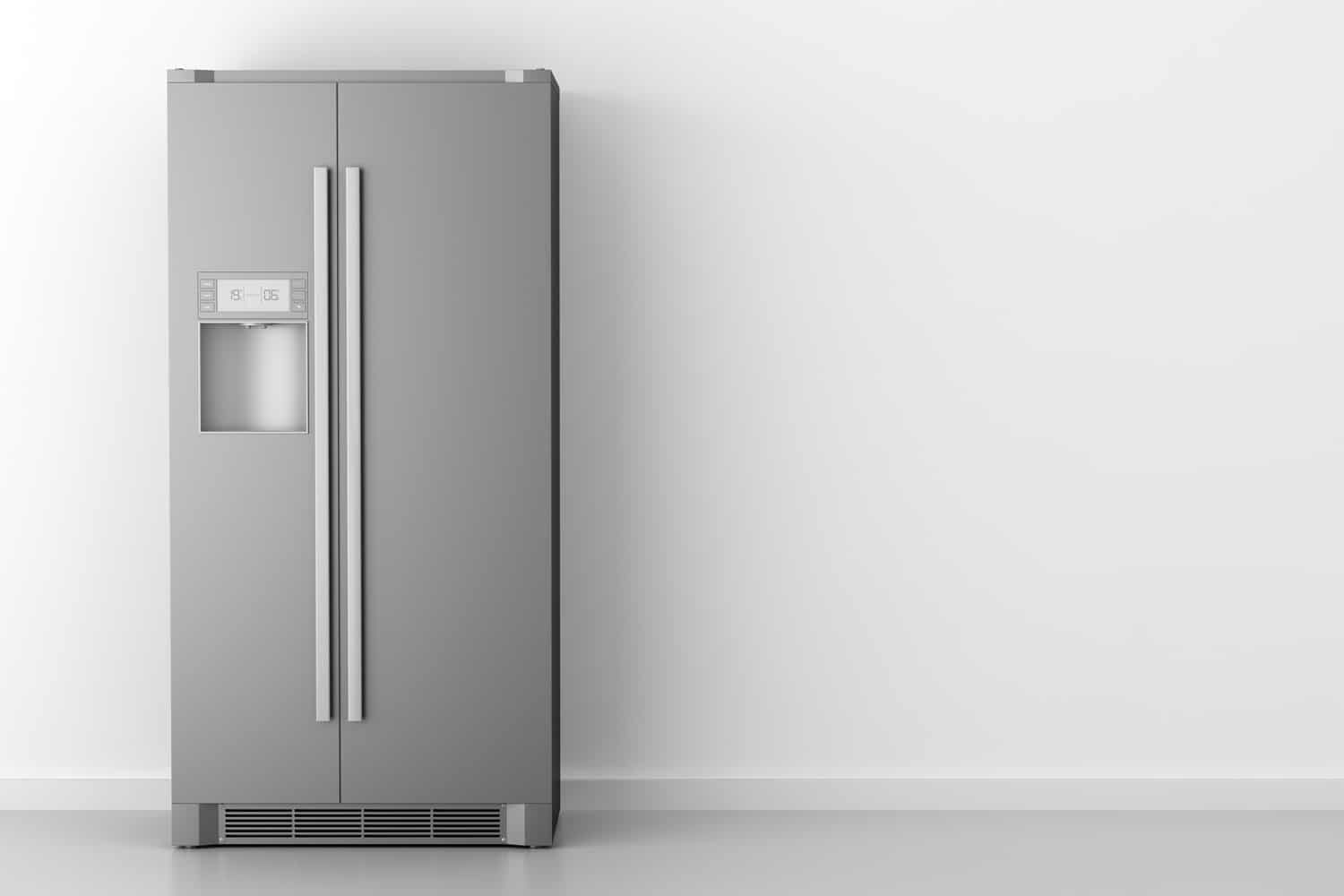
On average, a refrigerator should last you 10-12 years. Of course, this can depend on how well you maintain your appliance and whether or not a gas leak is present.
As we mentioned, it is normal for an older refrigerator to develop minor problems once it hits eight years old. However, if the cost to repair your fridge outweighs its value, that means you should invest in a new one.
Moreover, newer, higher-quality refrigerators will outlast older options, so when the time for an upgrade comes, make sure you find a durable appliance. Although buying refurbished or lightly used is a nice way to reduce landfill waste, you won't get ten-plus years out of one.
To Wrap Things Up
Whether your fridge is brand new, slightly used, or on its last leg, knowing how it works is essential. From what we found, the gas inside a fridge should last the entire lifespan of your appliance.
On top of that, most people won't ever need to re-gas their fridge unless a leak develops. In that case, we recommend calling a professional technician and having them repair the Freon leakage. As we said, this can be dangerous to breathe in and ingest, so be careful.
Regardless, keep an eye out for warning signs of a leak or dying refrigerator, and don't forget to schedule regular tune-ups for your appliance the older it gets.
Made it to the end? Check out these super helpful related kitchen posts below!
Can You Get Dents Out Of A Refrigerator? [And How To]
How To Quiet A Noisy Refrigerator Compressor [8 Different Ideas]
Can A Refrigerator Be Stored Next To A Stove Or Oven? [And How Close]



